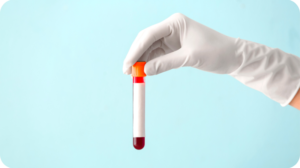Doctors have long recommended their middle-aged adult patients take a daily low-dose (81mg) “baby” aspirin to help protect against heart disease and some forms of cancer. Until this year, it seemed like a small, relatively harmless step to take for what experts said were potentially significant benefits.
Turns it out it may not provide the benefits experts hoped. In fact, that tiny little pill may potentially cause harm when taken on a daily basis.

The same group—the U.S. Preventative Services Task Force— that recommended daily low-dose aspirin as a preventative strategy against colorectal cancer in 2016, is now advising against taking the painkiller on a daily basis. The Task Force is currently recommending that the regimen be used only with survivors of a cardiac event or those at high risk of heart disease, and suggests more research is needed to study low-dose aspirin’s potential impact on cancer.
The issue is not just aspirin’s effectiveness. Aspirin can irritate stomach lining and it thins the blood. Taken daily, it can pose a risk to anyone with stomach ulcers and other gastric problems, bleeding or clotting issues, or individuals taking a prescription blood thinner such as Wayfarin or Heparin. Here are more precise guidelines for groups that should consider continuing a regimen of daily low-dose aspirin, in consultation with a physician.
- 40 or older, at high risk (10 percent or more) of heart attack or stroke in the future
- Anyone who has had heart surgery or a stent, or experiences chest pain due to coronary disease.
- Anyone who has elevated risks due to specific lifestyle or health factors such as smoking, or hypertension.
Keep in mind that just as the previous recommendations changed, future research may refine these guidelines. We’ll report on any updates as they become available (a good reason to sign up for our blog post alerts!).
The Takeaway
Current medical research suggests a daily low-dose (baby) aspirin can be beneficial for anyone recovering from, or at high risk of, a cardiac event such as a heart attack or stroke. Others should not take aspirin daily. In any case, consult your doctor before taking any supplement or over-the-counter medicine.
Show some love if you liked this post!







